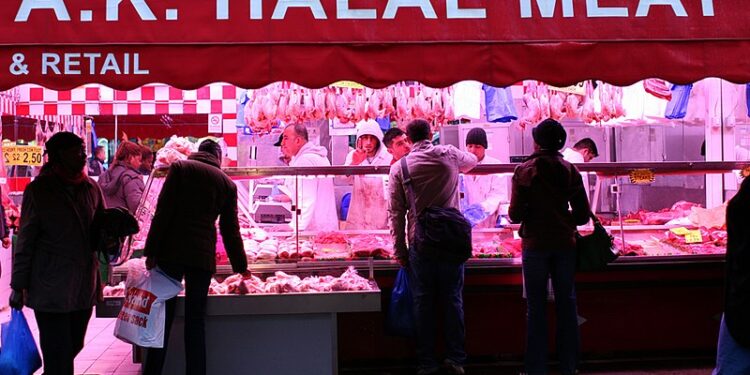Brussels – EU-Algerian bilateral relations become strained over “halal” meat, the process of making food according to Islamic dictates. The government is introducing requirements deemed too meticulous and even more costly through specific certifications that disturb the European Union. The halal tug-of-war stems from the Algerian authorities’ decision to impose new conditions on EU exports and, specifically, certifications of suitability released by the Grand Mosque of Paris. A measure that was introduced in late 2023 that Brussels is censuring.
“The Commission contacted the Algerian authorities on several occasions, expressing serious concerns about the measure and urging the Algerian authorities to reconsider it,” Valdis Dombrovskis, Trade Commissioner, said in response to a question on the subject submitted by MEP Bert-Jan Ruissen (ECR). The von der Leyen team is aware of the “serious negative effects on exports of agrifood products to Algeria” and thus the economic setbacks for ‘made in EU’ but the situation remains far from easy to resolve.
“The Commission is sparing no efforts in working towards improved trade and investment relations with Algeria, which remain very challenging overall,” Dombrovskis admits, assuring that there is no intention to let up. The EU executive plans to engage ” at both the technical and political levels” to redeem “all aspects” that complicate the access of European products to the Algerian market.
The halal meat issue is just the latest of an unyielding policy that prevents companies from EU countries from doing business in North Africa, the reason for tensions that resulted with the start of the dispute resolution procedure. For sure, and Dombrovskis says it openly, “The Commission considers that Algeria’s introduction, in June 2023, of the additional halal certification measure significantly hinders trade with the EU.” An obstacle that it does not like and that sours bilateral relations.
English version by the Translation Service of Withub




![Una donna controlla le informazioni sul cibo specificate sulla confezione [foto: archivio]](https://www.eunews.it/wp-content/uploads/2014/12/Etichette-alimentari.jpg)

